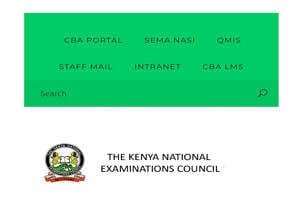Empowering Educators Through the KNEC Online Training Platform for Competency-Based Assessment

Introduction to Competency-Based Assessment
Competency-Based Assessment (CBA) has emerged as a crucial approach in modern education, particularly within the Kenyan education sector. This method focuses on evaluating students’ abilities to apply knowledge and skills in real-world contexts rather than merely measuring rote memorization and theoretical understanding. CBA emphasizes the mastery of specific competencies that are deemed essential for success in both academic and professional spheres. As such, this assessment model is instrumental in shaping well-rounded individuals who are equipped for the complexities of the contemporary world.
Unlike traditional assessment methods, which often prioritize standardized testing and summative evaluations, CBA offers a more nuanced understanding of student performance. Traditional assessments tend to emphasize the retention of information for specific examinations, thereby limiting the opportunity for learners to demonstrate practical application of the skills acquired. In contrast, competency-based assessment provides a framework for ongoing evaluation throughout the learning process. This dynamic approach allows educators to gather a comprehensive view of a student’s progress, enabling timely interventions and personalized support aimed at enhancing learning outcomes.
The significance of CBA lies not only in its ability to measure knowledge but also in promoting student engagement. By focusing on real-life applications, CBA fosters intrinsic motivation, encouraging students to take ownership of their learning journey. It cultivates a more inclusive environment in which diverse learning needs are recognized and addressed. As the Kenyan education sector continues to evolve, the need for innovative training solutions becomes evident. The Kenya National Examinations Council (KNEC) is rising to this challenge by developing an online training platform aimed at empowering educators. This initiative will equip teachers with the necessary skills to implement CBA effectively, ensuring that students are better prepared for future challenges.
Overview of KNEC Resource Centre
The Kenya National Examinations Council (KNEC) Resource Centre plays a crucial role in the Kenyan education sector. Established to facilitate educational improvements, the Resource Centre aims to enhance the competencies of teachers and educators through various innovative strategies. The Centre is fundamentally committed to upholding high educational standards while providing systematic evaluation methods for the curriculum and examinations across the nation.
Since its inception, the KNEC Resource Centre has sought to address the educational challenges faced by teachers. Its mission is not only to offer evaluation services but also to develop comprehensive training materials and resources that support ongoing teacher development. By providing educators with the necessary tools and training, the Resource Centre promotes an adaptive approach to the evolving educational landscape in Kenya, particularly with the introduction of Competency-Based Curriculum (CBC).
Through initiatives such as the KNEC online training platform, the Resource Centre has significantly improved access to insights and training that are vital for successful examination preparation and execution. The platform allows educators to familiarize themselves with the expectations for examinations while aligning their teaching strategies with the competency-based assessment framework outlined by KNEC. This progressive approach encourages educators to embrace continuous professional development, thus fostering an environment where quality education can thrive.
In striving for an education system that prioritizes quality and effectiveness, the KNEC Resource Centre has firmly established itself as a beacon of support for the Kenyan education sector. By offering training resources and an emphasis on competency-based assessment, KNEC aims to empower educators, ensure the relevance of the curriculum, and ultimately enhance the educational outcomes for students across Kenya.
Features of the Online Training Platform
The Kenya National Examinations Council (KNEC) has pioneered an innovative online training platform designed to enhance the competency-based assessment (CBA) framework within the Kenyan education sector. This platform is equipped with a variety of interactive and collaborative features that cater to diverse learning styles and promote an engaging educational experience.
One of the standout elements of the online training platform is its instructional videos. These resources present complex concepts in an easy-to-understand format, accommodating visual learners and providing them with the necessary tools to grasp the principles of CBA effectively. Complementing this, live chat functionality allows real-time interaction between educators. This immediate feedback mechanism fosters an environment where questions can be addressed promptly, further enhancing the learning process.
Additionally, discussion blogs encourage participants to share ideas and insights, nurturing a collaborative culture among educators. These blogs serve as digital forums where best practices can be exchanged, promoting continuous professional development. Podcasts also form an integral part of the platform, enabling educators to absorb information on the go, which can be particularly beneficial for those with demanding schedules.
Another significant feature is video conferencing, which enables live discussions and workshops, breaking geographical barriers and bringing together educators from various regions. This feature not only enhances community building but also facilitates knowledge-sharing across the Kenyan education sector.
Moreover, tools such as forums, wikis, and shared documents further enrich the learning experience. Forums allow for asynchronous discussions, enabling learners to engage at their convenience. Wikis provide collaborative space for compiling resources and knowledge, while shared documents promote collective efforts in lesson planning and resource development. Together, these features contribute to a rich, interactive educational landscape, empowering educators to effectively implement KNEC’s competency-based assessment methodologies.
The Self-Paced Learning Experience
The integration of a self-paced learning experience within the KNEC online training platform represents a significant advancement for educators in the Kenyan education sector. This approach allows teachers to engage with the material at their convenience, making it exceptionally beneficial for those balancing multiple responsibilities including teaching, administrative duties, and personal commitments. The flexibility offered by the self-paced format is crucial, as it allows educators to tailor their learning journey according to their individual needs and preferences.
One of the prominent advantages of self-directed learning is the ability to revisit content as necessary. For instance, educators can pause instructional videos, review critical concepts, or explore supplementary materials without the pressure of keeping up with peers in a traditional classroom setting. This ensures a deeper understanding of competency-based assessment (CBA), which is an essential focus of the KNEC examinations. The platform’s structure enables educators to strengthen their grasp of various evaluation methods and strategies, ultimately leading to improved outcomes for their students.
Moreover, the adaptability of the KNEC online training fosters a culture of continuous professional development within the Kenyan education sector. Teachers are encouraged to take ownership of their learning experiences, allowing them to develop new skills that can be immediately applied in their classrooms. This self-motivated approach not only enhances their teaching efficacy but also instills a sense of accountability and commitment to lifelong learning. As educators navigate the digital landscape, embracing such self-paced platforms is vital for their professional growth and ensuring they remain aligned with the evolving standards of competency-based assessment.
Personalized Learning Through Feedback
The KNEC online training platform plays a pivotal role in enhancing personalized learning through its integrated feedback system. This feature is designed to provide educators with tailored assessments following their reflection sessions, a fundamental aspect of the Kenyan education sector’s shift towards competency-based assessment. By leveraging this system, teachers receive expert feedback that not only highlights areas for improvement but also acknowledges their strengths, fostering a balanced approach to personal growth.
Individualized feedback is crucial in guiding teachers through their professional development journey. As educators reflect on their practices, the platform enables them to receive insights that are specific to their experiences and challenges encountered within the classroom. This tailored feedback not only acts as a motivational tool but also as a resource for developing strategic approaches to enhance teaching effectiveness. By using the KNEC platform, educators can better understand how to implement the principles of the Competency-Based Curriculum (CBC) in their classrooms, ensuring they meet the diverse learning needs of their students.
Moreover, this feedback mechanism creates a culture of continuous improvement among educators. It empowers teachers to take ownership of their professional development, encouraging them to engage in reflective practices that align with their teaching philosophy. The KNEC system emphasizes the significance of constructive criticism and guidance in promoting lifelong learning among educators. As they interact with the platform and engage with feedback, teachers can formulate personal goals and strategies that contribute to their effectiveness in delivering quality education.
As the Kenyan education sector continues to evolve, the importance of a robust feedback system cannot be overstated. Through the KNEC online training platform, educators are not only equipped with the tools to enhance their competencies but also the support necessary for meaningful professional growth.
Tracking Progress and Performance Analysis
The KNEC online training platform serves as a vital resource for educators in the Kenyan education sector, particularly in the realm of Competency-Based Assessment (CBA). One of its key features is the ability to track individual and group progress. This functionality allows educators to monitor their own engagement with the platform, as well as gain insights into the performance of their peers and students. By analyzing these metrics, educators can make informed decisions that enhance their teaching effectiveness.
One of the crucial aspects of tracking on the KNEC platform is the monitoring of time spent on various activities. By assessing how much time educators allocate to different training modules, they can identify which areas require more focus and attention. This self-regulation not only facilitates better learning outcomes but also promotes accountability among educators. Understanding time investment in activities related to CBA can lead to improved strategies that cater to both teacher development and student learning.
Furthermore, the performance metrics provided by the KNEC platform enable educators to compare their progress against established benchmarks. These metrics include assessment scores, completion rates, and engagement levels. By analyzing such data, educators can identify strengths and areas needing improvement. This understanding fosters a more tailored approach to professional development, allowing teachers to refine their teaching methods according to the needs of their students.
Ultimately, the insights gained from tracking progress on the KNEC online training platform can drive substantial improvements in classroom performance. By prioritizing data-driven analysis, educators can enhance their competence in implementing CBA effectively, thereby benefiting the overall quality of education in Kenya. The continuous refinement of teaching strategies through these insights can lead to a more impactful learning experience for all stakeholders involved in the Kenyan education sector.
Peer-to-Peer Collaboration Opportunities
The KNEC online training platform plays a pivotal role in fostering peer-to-peer collaboration among educators within the Kenyan education sector. One of the standout features that promotes educational networking is the incorporation of forums and discussion blogs. These platforms offer educators a unique opportunity to engage in meaningful dialogues, share perspectives, and discuss best practices related to competency-based assessment (CBA).
Through dedicated forums, educators can initiate conversations, seek advice on challenging topics, and exchange innovative ideas pertinent to the KNEC examination framework. This real-time interaction enables individuals from different geographic locations to come together, thereby creating a culture of shared learning. In essence, these platforms break down traditional barriers, empowering teachers with diverse insights that can enhance their teaching methodologies.
Furthermore, discussion blogs serve as a repository of knowledge, allowing educators to document their experiences and observations related to the implementation of CBA. This written discourse can be beneficial not only for the authors but for other educators seeking to implement similar practices in their own institutions. Resources, lesson plans, and assessment tools can easily be uploaded and referenced, fostering a collaborative environment grounded in continuous professional development.
The synergy created through these collaborative efforts leads to a stronger sense of community among educators, which is fundamental in navigating the dynamic landscape of the Kenyan education sector. As educators engage with their peers, they not only enhance their understanding of competency-based assessments but also build a network of support that can aid them in their professional growth. Therefore, the KNEC online training platform is instrumental in creating a collaborative ecosystem that not only benefits individual teachers but ultimately reinforces the overall quality of education being delivered across schools in Kenya.
Real-World Impact of the Training Program
The KNEC online training platform for Competency-Based Assessment (CBA) has significantly influenced the Kenyan education sector, particularly in enhancing the assessment practices of educators. Numerous case studies and testimonials from teachers participating in this program highlight the transformative impacts on their teaching methodologies and student learning outcomes. For instance, a group of teachers from a primary school in Nairobi reported notable improvements in student engagement after implementing the strategies learned through the training. They emphasized that the interactive nature of competency-based assessments led to increased participation and interest in their lessons.
Moreover, an educator from a rural secondary school shared insights into how the training has facilitated better comprehension of curricula among students. By employing the techniques learned from the KNEC program, this teacher created tailored assessments that resonate with the unique backgrounds of their students, ultimately leading to improved grades in national examinations. These experiences illustrate the critical role that KNEC training plays in bridging theoretical knowledge with practical application.
Beyond direct classroom impacts, the KNEC training has fostered a collaborative culture among educators. Many schools have reported that trained teachers are now mentoring colleagues, sharing best practices, and refining assessment methods together. This ripple effect enhances morale and professional growth within the school community. Furthermore, schools involved in the program have noted a positive shift in their performance metrics, correlating with the increase in teaching effectiveness following the training. Collectively, these testimonials assert that the KNEC online training program is more than a professional development initiative; it is a catalyst for improving educational standards and student outcomes within the Kenyan education sector.
Future Prospects and Developments
The Kenyan National Examinations Council (KNEC) has made significant strides in the realm of educator training, particularly through its innovative online training platform tailored for competency-based assessment (CBA). As the Kenyan education sector evolves, the future of this platform holds considerable promise, with various prospects for further development and enhancement. One of the most notable areas for expansion is the diversification of course offerings. KNEC can explore creating specialized training modules that cater to a variety of educational levels and subjects, ensuring that educators across the spectrum are well-equipped to meet the demands of a rapidly changing educational landscape.
Moreover, the integration of new technologies within the KNEC online training platform is a critical component for future development. Emerging technologies such as artificial intelligence and data analytics can be leveraged to personalize learning experiences for educators, enabling them to engage with training content that aligns closely with their individual needs and professional growth aspirations. Furthermore, incorporating virtual and augmented reality tools could enhance practical training sessions, providing educators with immersive and interactive learning environments that better prepare them for classroom challenges.
Continuous improvement of the platform is also paramount. Feedback mechanisms should be established to facilitate ongoing dialogue with educators, thus allowing KNEC to adapt and refine its training programs based on user experiences and changing educational standards. Additionally, fostering partnerships with local and international educational bodies can lead to the exchange of best practices and resources, significantly enriching the KNEC training experience. Overall, the commitment of KNEC to not only support but empower educators through its online platform positions it as a leader in the Kenyan education sector, paving the way for a more responsive and quality-driven educational framework.







